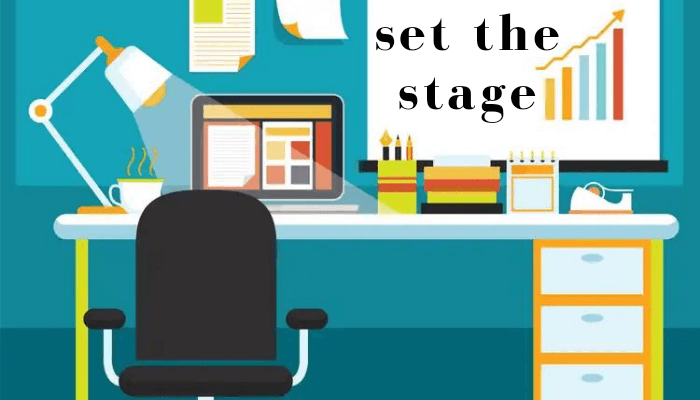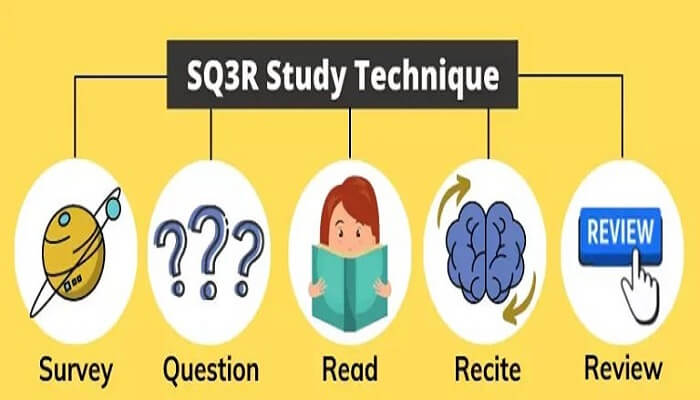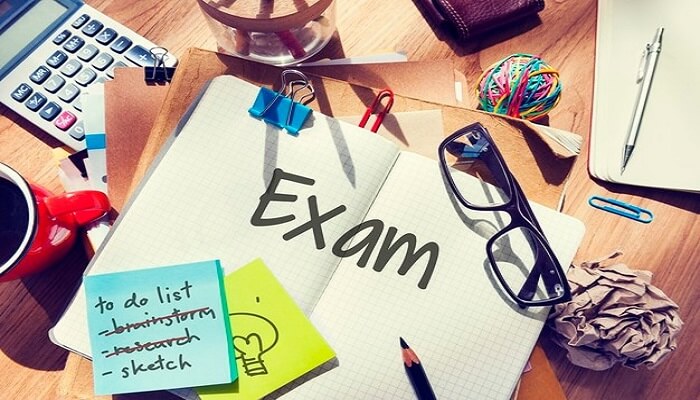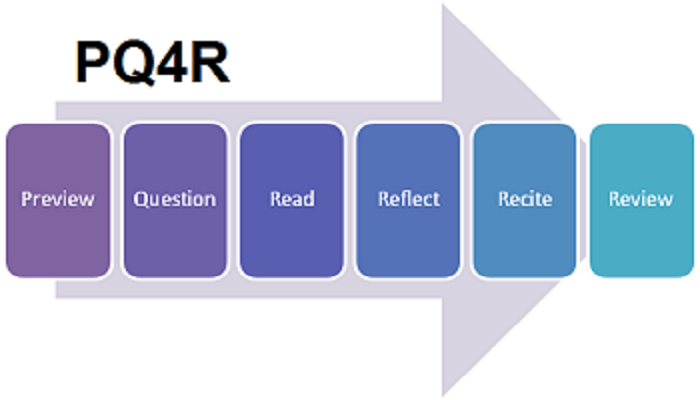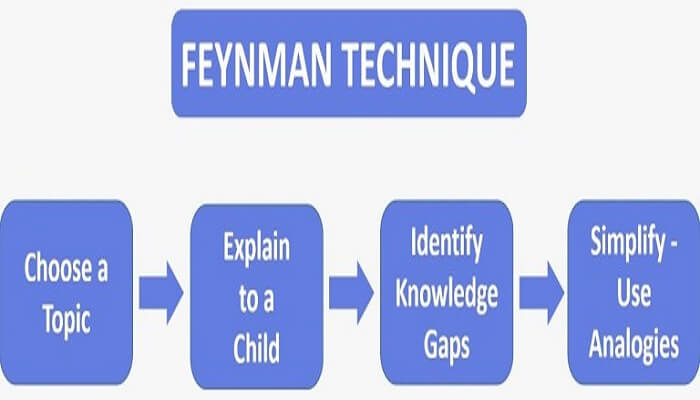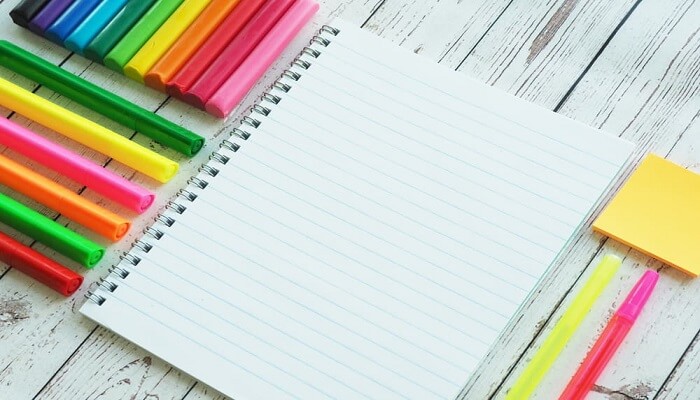Have you ever asked yourself why you can’t memorize a vast quantity of information in a short time? You probably haven't been utilizing study techniques that are effective, and as a result get stressed when you can't assimilate further while studying.
A lot of people believe that studying for long hours are the best path to being a model, straight-A student. They believe that unless they forgo sleep or any semblance of a social life, there are simply not enough hours in the day to stay on top of all their schoolwork, yet research shows that highly successful students actually spend less time studying than their peers do, they just study more effectively.
As a student, it is imperative to develop effective time management and efficient study techniques for efficient learning to help you retain the most information. You really should start afresh with a new strategy, using the most effective study methods provided for you in this article.
Article Guide:
-
Why are study skills important?
-
Ineffective learning techniques
-
Set the stage
-
12 effective study techniques
-
The SQ3R Method
-
Retrieval Practice
-
Spaced Practice
-
The PQ4R Method
-
Interleaving Practice
-
The Feynman Technique
-
Paraphrasing and Reflecting
-
The Power of Examples
-
Color-Coded Notes
-
Mind Mapping
-
Enter the Diffuse Mode
-
Study Before Bed
-
Bonus Tips - 10 highly effective study habits
-
Conclusion
Read also: 10 Best Scholarship Sites for African Students
Why Are Study Skills Important?
By actively developing good study skills, learning strategies, and techniques to study effectively, you will keep your motivation high and achieve your goals more easily and more efficiently. Here are 5 reasons why you should develop study skills.
-
For All-Round Success
Learning study skills will not only help you in school, they will also help you succeed in life and your professional career.
-
Confidence Booster
Developing good study skills can increase your confidence, competence, and self-esteem. They can also help to reduce anxiety about tests and deadlines.
-
Social Equilibrium
By developing effective study skills, you may be able to cut down on the numbers of hours you spend studying, leaving more time for other things in your life.
-
Increases Your Learning Capacity
Developing good study skills can improve your ability to learn and retain knowledge.
-
Gives Value To Your Work
Students who use effective study skills may feel their work and effort is more worthwhile.
Ineffective Learning Techniques
A lot of students master learning techniques that are time consuming and just for short-term fix. They become familiar with ideas and information in preparation for a test, but forget it a week later because they didn't utilize effective study methods, and their study techniques never led to long-term learning.
Here is a highlight of some ineffective learning techniques:
-
Studying without setting a goal
-
Studying for long periods of time
-
Massed practice - the act of studying a single subject for a long period of time and repeating phrases over and over to memorize them
-
Blocked practice - the act of reviewing one topic repeatedly before moving onto another topic
-
Reading and re-reading a text continuously
-
Treating all texts equally
-
Not having the tools needed for reading (highlighter, pen. etc.)
-
Cramming
-
Not processing what have been read
Set the Stage
The key to becoming an effective student is learning how to study smarter, not harder. Successful students create the right study conditions for their body and brain to get accustomed to, in order to learn and retain information successfully. The following tips should help you set the stage for efficient learning.
-
Sleep and rest well
There is a positive relationship between students’ grades and how much sleep they are getting. However, this doesn’t only mean getting a full 8 hours of sleep before a big test. What matters, even more, is getting enough sleep for several nights before you do the bulk of your studying.
-
Plan a schedule study time
Having a set study time can help you dedicate yourself to what you need to get done each week. If your weekdays are busy, schedule a study session early in the morning after a good sleep, when your brain is still fresh. Then you have the rest of the day to relax or explore!
-
Change your study environment
Studies show that switching up your study environment can increase recall performance based on several events. Instead of studying at home every day, try checking out a new spot each week or heading to your local library. A change in scenery can improve both your memory and concentration levels.
-
Understand what works for you
If you have a good space at home or any other spot or location that is reliably a productive place for you, it makes sense to stick with this when you are under pressure.
-
Keep things organized
One of the most important ways to ensure you get your homework done successfully at home is to keep your books, notes, and other school materials organized. Keep them in the same place when you're done using them.
-
Listen to calming music
Sometimes you can listen to cool background music while studying, and this can actually help you pay attention to the task at hand. Songs with lyrics can be distracting most times, as you might end up lip syncing or even dancing.
-
Eliminate distractions
Eliminate distractions by silencing your phone and any background noises such as the TV or radio. Turn off your internet Wi-Fi to avoid getting notifications from social media until your study session is over. You might also want to get away from rooms that will be heavily used while you're working, such as the kitchen.
-
Eat smart food
Coffee and candy will give you a temporary boost, but then you might have a blood sugar crash. For energy that is more focused and sustainable, try eating healthy snacks
12 Effective Study Techniques
Study skills, academic skill, or study strategies are approaches applied to learning. This help to tackle the process of organizing and taking in new information, retaining information, or dealing with assessments, and could also include time management and motivational techniques.
This section highlights the most effective study methods for University students or any college student's approach to learning. Pay attention!
1. The SQ3R Method
The SQ3R method is one of the study techniques that are effective for young scholars. This is a reading comprehension technique that helps students identify important facts and retain information when studying.
SQ3R (or SQRRR) is an acronym that stands for the five steps of the reading comprehension process. You should try these steps for a more efficient and effective study session:
-
Survey - Start by skimming the first chapter and taking notes on any headings, subheadings, images, or other standout features like charts.
-
Question - Make questions around the content of the chapter, such as, what do I already know about this subject?
-
Read - Start to read the full chapter and look for answers to the questions you formulated.
-
Recite - After reading a section, summarize in your own words what you just read. Try recalling and identifying major points and answer any questions from the second step.
-
Review - This is an efficient revision technique that involves you reviewing the chapter of a book or material to fully understand it. Quiz yourself on the questions you created and re-read any portions you need to.
2. Retrieval Practice
Retrieval practice is based on the concept of remembering at a later time. Recalling an answer to a question improves learning more than looking for the answer in your textbook.
Remembering and writing down the answer to a flashcard is a lot more effective study method than thinking you know the answer and flipping the card over early. If you practice retrieval, you are more likely to remember the information later on.
Below are some ways you can implement the retrieval process into your study routine:
-
Utilize practice tests - Implement the use of practice tests or questions to quiz yourself, without looking at your book or notes.
-
Make your own questions - Create possible test questions for yourself and be your own teacher. If you’re in a study group, encourage others to do the same, and trade questions.
-
Use flashcards - Create flashcards, but make sure to practice your retrieval technique. Instead of flipping a card over prematurely, write the answer down and then check.
3. Spaced Practice
Spaced practice is another study technique for efficient learning that encourages students to study over a longer period of time instead of cramming the night before.
Sometimes the brain forgets vital information, and then overworks itself to recall that information. Applying the Spaced Practice technique allows your mind to make connections between ideas and build upon the knowledge that can be easily recalled later.
You can try the exemplary approach below:
-
Day 1: Learn the material in class
-
Day 2: Revisit and review
-
Day 3: Revisit and review
-
After one week: Revisit and review
-
After two weeks: Revisit and review
Note: At the beginning of each semester, schedule some time each day just for studying and reviewing the material. Even if your exams are months away, this technique will help you hold yourself accountable.
4. The PQ4R Method
The PQ4R method is one of the study techniques that are effective for learning. This method takes an active approach to learning that improves memorization and understanding of the topic.
Similar to the SQ3R technique which is an efficient revision technique, PQ4R is an acronym that stands for the six steps in the process.
-
Preview - Preview the information before you start reading to get an idea of what the subject matter will be. Skim the material and read only the headers, subheadings, and highlighted text.
-
Question - Ask yourself questions related to the topic, such as, What do I expect to learn? What do I already know about this topic?
-
Read - Read the information one section at a time and try to identify answers to your questions.
-
Reflect - Go back and see if you answered all the questions or can find the answer to some questions that you might have skipped.
-
Recite - In your own words, either speak or write down a summary of the information you just read.
-
Review - Look over the material one more time and answer any questions that have not yet been answered.
5. Interleaving Practice
Interleaving Practice is also one of the best study techniques for students. An effective method of studying is to work on a set of problems that are related but not all of the same kind. For example, a set of math word problems that call for addition, subtraction, multiplication, or division. The consecutive problems cannot be solved with the same strategy. This is more effective than doing one multiplication problem after another.
6. The Feynman Technique
The Feynman Technique is an efficient method of learning a concept quickly by explaining it in plain and simple terms.
Studies show that by attempting to explain a concept in our own words, we are likely to understand it a lot faster. This is a suitable effective study method for university students, especially those studying professional courses that would need to be natural and professional in their careers.
See how the Feynman technique works:
-
Write the subject/concept you are studying at the top of a sheet of paper.
-
Then, explain it in your own words as if you were teaching someone else.
-
Review what you wrote and identify any areas where you were wrong. Once you have identified them, go back to your notes or reading material and figure out the correct answer.
-
Lastly, if there are any areas in your writing where you used technical terms or complex language, go back and rewrite these sections in simpler terms for someone who doesn’t have the educational background you have.
The Feynman Technique was developed by theoretical physicist Richard P. Feynman, who has also won the Nobel Prize. He is also known for his learning process that makes the process extremely simple and effective.
7. Paraphrasing and Reflecting
This is a learning technique that involves intentional learning strategies, relating what you are studying to past events.
Many of us have read a few paragraphs in a textbook only to realize that we didn’t retain a single concept or key point presented in those paragraphs. When this happens, relate what you are trying to study with prior knowledge or past experience, and think about how you would explain the content to a 5-year-old, reflecting on and asking questions about the content.
8. The Power of Examples
Some subjects or topics would require you to learn lots of definitions of abstract ideas and concepts. Most students memorize these definitions by repeating them over and over again till they write their test or examinations.
But if you do this, two things are likely to happen:
-
You’ll probably feel like a robot; and
-
You won’t fully understand the concept, which will make it hard to remember.
Instead of doing this, you can get ideas on how to learn definitions more effectively by looking at how professional actors learn their lines. Professional actors don’t learn their lines word for word, instead they try to understand the character’s motivations and needs. Gaining a deeper understanding of these factors helps the actor to learn their lines more efficiently.
Similarly, gaining a deeper understanding of an abstract concept will help you to learn and memorize it. Therefore, good examples will help you to deeply understand the abstract concept.
Whenever you have to memorize an abstract concept, collect as many different examples as possible. Get examples from your teachers, from your textbooks, etc. Plaster those examples over your wall and in key locations in your house (e.g. on the mirror and fridge), and make reference to them when you study. This is also one of the best study techniques for students.
9. Color-Coded Notes
A recent study found that color can improve a person’s memory performance. That same study found that warm colors (red and yellow) “can create a learning environment that is positive and motivating that can help learners not only to have a positive perception toward the content but also to engage and interact more with the learning materials.” It also reported that warmer colors “increase attention and elicit excitement and information.”
Messy notes can make it hard to recall the important points of a lecture. Writing in color is a dynamic way to organize the information you’re learning. It also helps you review and prioritize the most important ideas.
Keep these tips in mind when using color-coded notes:
-
Write down key points in red.
-
Highlight important information in yellow.
-
Organize topics by color.
-
Don’t color everything, just the most important information.
10. Mind Mapping
One of the most effective study methods is mind mapping. If you’re a visual learner, try mind mapping, a technique that allows you to visually organize information in a diagram. First, you write a word in the center of a blank page. From there, you write major ideas and keywords and connect them directly to the central concept. Other related ideas will continue to branch out.
The structure of a mind map is related to the way our brains store and retrieve information. Mind mapping your notes instead of just writing them down can improve your reading comprehension. It also enables you to see the big picture by communicating the hierarchy and relationships between concepts and ideas.
See how mind mapping works:
-
Grab a blank sheet of paper and write your study topic in the center,
-
Connect one of your main ideas (i.e., a chapter of your book or notes) to the main topic,
-
Connect sub-branches of supporting ideas to your main branch. This is the association of ideas.
Note: Use different colors for each branch and draw pictures if it helps.
11. Enter the Diffuse Mode
If you are confused or feel stuck working on a difficult problem, then you should take a break to allow your brain go into diffuse mode.
In the diffuse mode, you relax your attention and allow your mind to wander. Let your subconscious mind do the work for you. You can take a walk, a shower, or a music break just to relax before you continue studying. While you do this, your brain are constantly working away on the problem you were faced with when studying.
It may seem like you’re wasting time in the diffuse mode but you’re not. Your brain is still working quietly in the background on the problem, even though you’re not actively focusing on it.
Some activities that will help you to enter the diffuse mode of thinking are:
-
Walking
-
Listening to music
-
Meditating
-
Napping
-
Drawing
-
Having a bath/shower
12. Study before Bed
Sleep is crucial for brain function, memory formation, and learning. Studying before you sleep, whether it is reviewing flashcards or notes, can help improve recall.
When you’re asleep, the brain organizes your memories. Instead of pulling an all-nighter, study a few hours before bed and then review the information in the morning.
Scott Cairney, a popular researcher once said, “When you are awake you learn new things, but when you are asleep you refine them, making it easier to retrieve them and apply them correctly when you need them most.” This is important for how we learn but also for how we might help retain healthy brain functions.
Bonus Tips - 10 Highly Effective Study Habits
-
Plan when you're going to study
-
Study at the same time
-
Each study time should have a specific goal
-
Start with the most difficult subject first
-
Don't attempt to cram all your studying into one session
-
Avoid procrastination
-
Avoid distractions
-
Always review your notes before starting an assignment
-
Use study groups effectively
-
Review your notes, schoolwork and other class materials over the weekend
Conclusion
Learning effective study methods can ensure you are fully prepared for your exams and will help against any exam anxiety. Hopefully, with the list of the most effective study techniques provided in this article, you can avoid being a Jack the night before an important test or exam and make your study time more effective.
Remember to study smarter, not harder!
Read related articles:
Top 20 Scholarships For African Students 2021-2022



